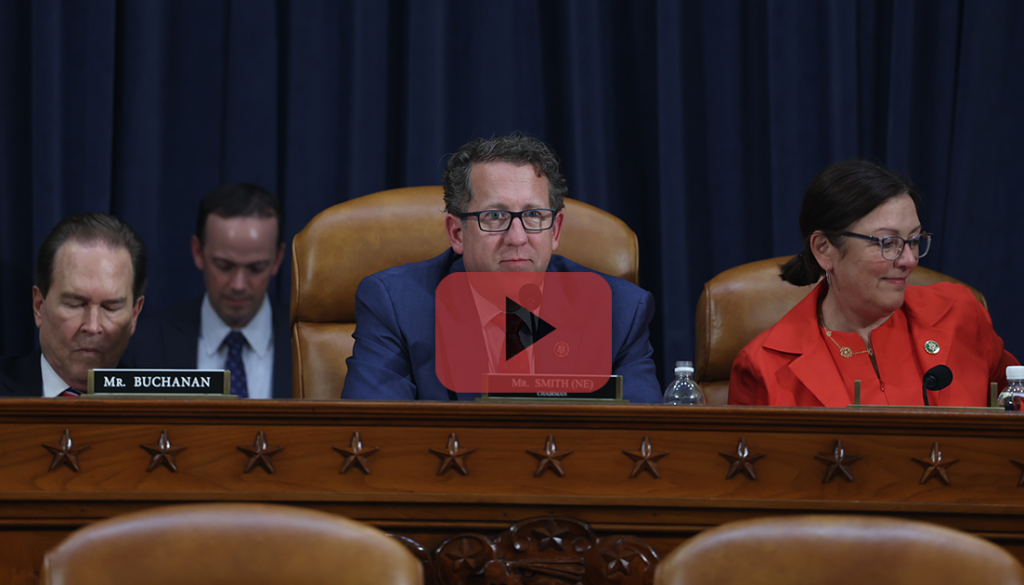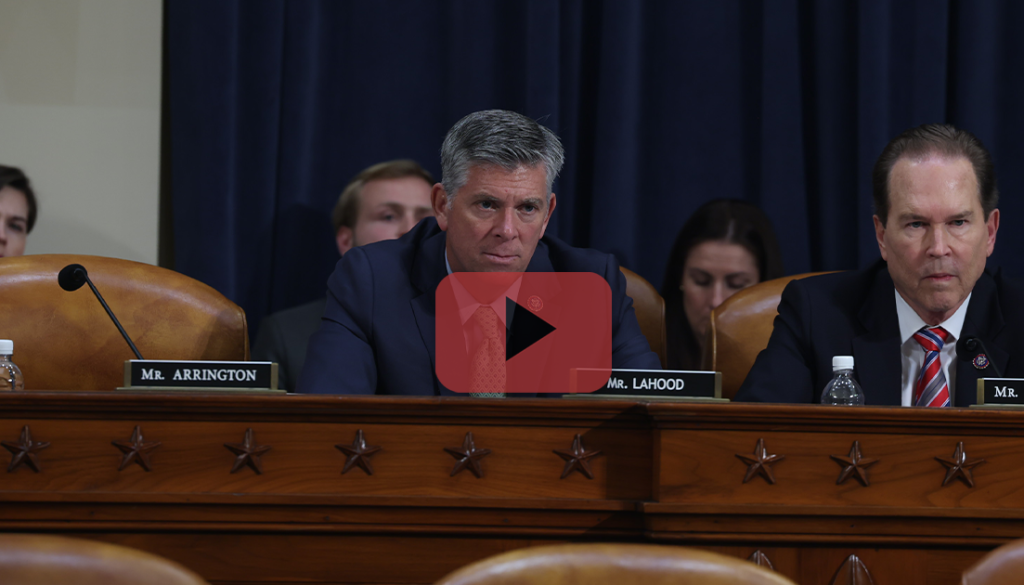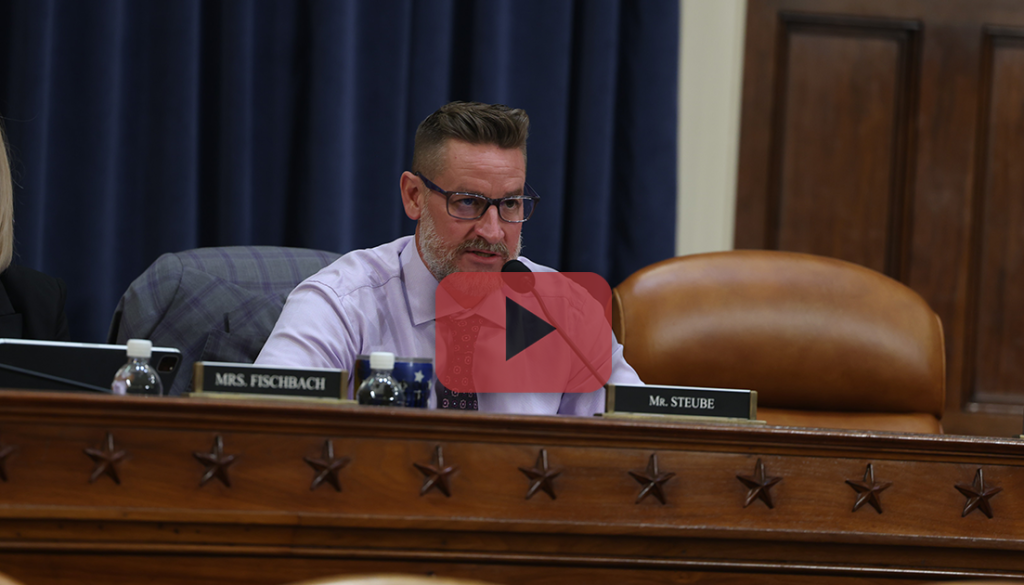WASHINGTON – On Wednesday, the Ways and Means Trade Subcommittee examined the Generalized System of Preferences (GSP) trade program and what possible reforms could help align the program better with America’s strategic trade goals. Witnesses emphasized the importance of the United States using trade policy to benefit American workers, farmers, and small businesses while combatting China’s unfair trade practices and coercive economic model.
GSP Can Be Reformed to Benefit American Workers and Producers and Help Move Supply Chains from China
America’s trade policy must be aligned with our strategic goals. Reforms in the program could help meet those goals, as one witness testified to Chairman Jason Smith (MO-08).
Chairman Smith (MO-08): “In addition to bringing more of our supply chains home, we want to strengthen trade relations in our backyard. Currently, U.S. content is not counted towards the rule-of-origin regional requirements under the GSP, like it is under the African Growth and Opportunity Act trade preferences and USMCA. Our trade policy should support American jobs at every opportunity. Should Congress consider changing the GSP rule-of-origin to allow GSP countries to purchase U.S. components to help meet the rule-of-origin, perhaps coupled with an increase in the 35 percent rule-of-origin threshold?”
Mr. Houseman, United Steelworkers: “The short answer – yes…So there’s an opportunity here. If we raise the standard, we’re asking our trading partners to do a little bit more for those producers in those countries. And then at the same time, American producers could benefit as well. And I think that’s a key element that really is a value to add to the GSP program.”
American Producers Must Not Be Undermined By Trade Preference Programs
In his questions, Trade Subcommittee Chairman Adrian Smith (NE-03) pointed out the importance of careful scrutiny to make sure GSP rules allow removal of any products from the program that might undermine American workers and producers.
Rep. Smith: “Now there’s been the accusation that the GSP has undermined domestic production. Mr. Gresser, can you elaborate on how GSP can be fashioned, or how it already is, in terms of import-sensitive products?”
Mr. Gresser, former administrator for GSP: “It has, as an integral and important part of the program, a petitioning process where interested parties can ask USTR to remove a product from the eligible list. While I was working on the program, we had such a petition from USA rice, which resulted in the removal of most rice products. We had such a petition from the Michigan cherry board, which resulted in the removal of cherry juice. This is an important part of the program. It works if there are particular products that are becoming sensitive. Everyone has a right to file such a petition.”
America Must Respond to China’s Exploitation of American Businesses
Foreign countries increasingly seek to exploit American innovation and leadership through unfair regulations related to digital trade and taxation. Rep. Darin LaHood (IL-16) asked about the importance of American leadership on digital trade to prevent the further spread of China’s harmful model of restrictive digital trade rules that harm American innovators and workers while benefiting Chinese companies.
Rep. LaHood: “If we do not put forward stronger digital trade provisions, talk about the competitive advantage we continue to cede to China in this space.”
Mr. Cory, trade expert: “Yep, it’s most definitely happening. Indonesia is a great example whereby Chinese cloud firms have gone into Indonesia and explicitly told the Indonesian officials that we are completely fine with data localization and other restrictions because it’s what they’re used to operating in China. They’re doing that explicitly to disadvantage U.S. tech firms because they recognize that U.S. firms obviously operate differently. And so there is this global competition in and around these regulations. And if the U.S. firms can’t rely on the U.S. government to help them push back on these types of restrictions, U.S. firms are going to lose out, and that will continue to happen in more and more countries, as they also consider China-like data localization restrictions.”
“Very Simple”: Tougher Enforcement Key to Helping Farmers Export More
Greater access to a foreign market would give American farmers more customers and provide foreign countries with a safe, affordable food supply. In response to Rep. Greg Steube (FL-17), a pork producer shared how farmers would be greatly helped by tough enforcement of program rules.
Rep. Steube: “How can the GSP be augmented to maintain American dominance in ag exports to beneficiary countries?”
Mr. Spronk, pork producer: “Very simple. Stronger enforcement mechanisms and more quickly responding, so that it doesn’t take so long to be able to do that enforcement. Those two things are very important to us.”
Background: Before expiring in 2020, the Generalized System of Preferences was America’s largest trade preference program. The program was first authorized in 1974. Historically, the program aims to promote economic development and raise standards in developing countries while providing cost savings to American businesses and consumers on products that are not available from U.S. suppliers. Exports from 119 beneficiary developing countries that meet the program rules receive duty-free access to the U.S. market for a select list of exports.






